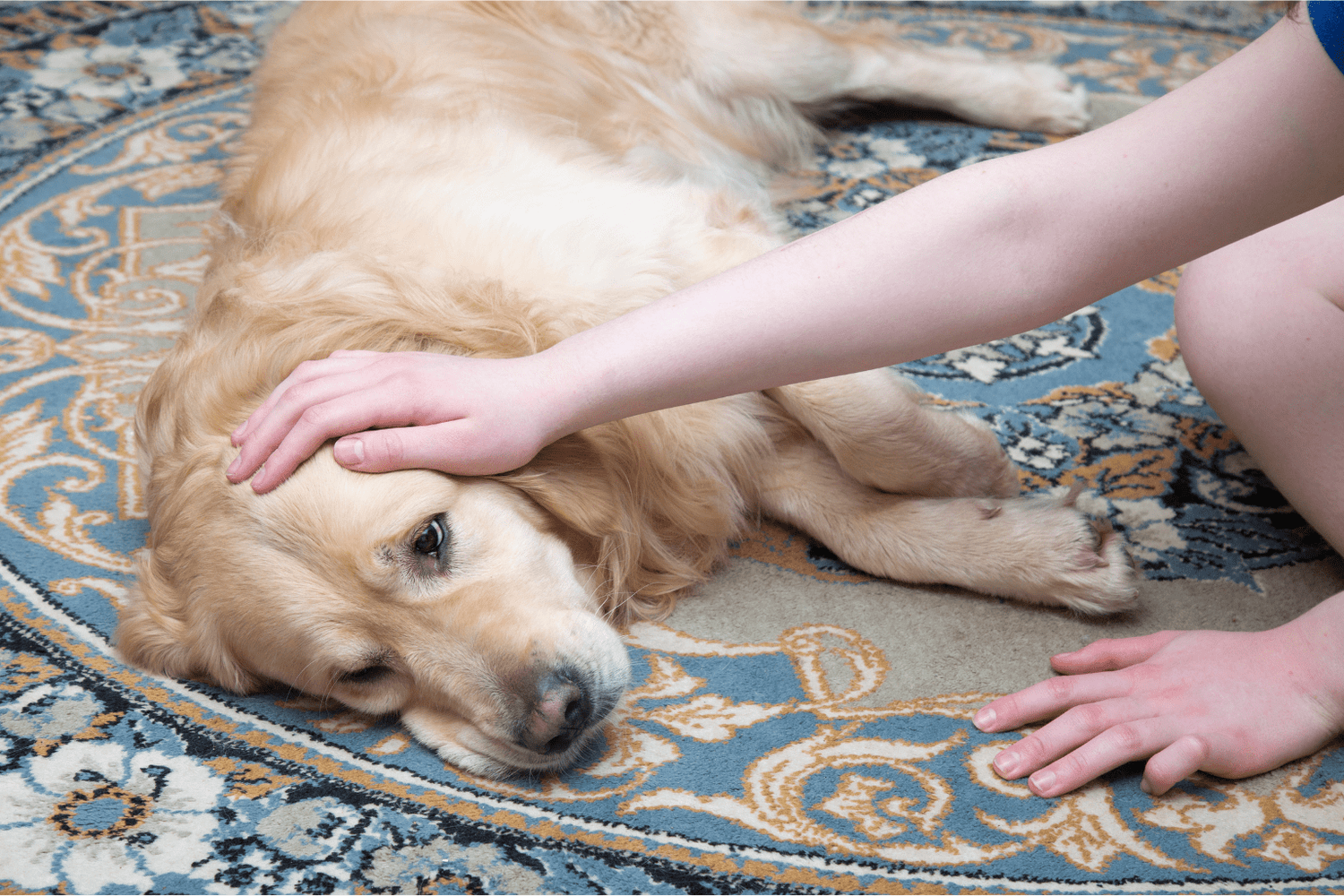Key Takeaways
- Dog meningitis is the inflammation of the protective membranes around the brain and spinal cord.
- Early recognition of dog meningitis symptoms is crucial for effective treatment.
- Immediate veterinary care combined with gentle natural support can aid in recovery.
- Many dogs can return to their joyful, tail-wagging selves with proper care.
- Prompt attention is essential when a dog shows signs like inability to lift their head or refusal to eat.
Table of Contents
- What Is Dog Meningitis? Early Warning Signs Every Pet Parent Should Know
- Causes & Types: Breaking Down the Roots of Dog Meningitis
- Dog Meningitis vs. Other Neurological Illnesses, Comparing, Contrasting, Clarifying
- Getting an Accurate Diagnosis: What Vets Do, What You Can Expect
- Treatment Choices & Natural Support: Working with Your Veterinary Team
- Recovery, Prognosis & Thriving After Meningitis, What Real-Life Success Looks Like
- Prevention & Protection: Setting Your Dog Up for a Healthier Life
- What to Do in a Crisis: First Aid & Emergency Actions
- Natural Recovery Support: Gentle Care During Healing
- Hope, Healing & Moving Forward Together
Dog Meningitis, Holistic Guides, Vital Signs & Hopeful Healing for Every Pet Parent
When your beloved companion suddenly can't lift their head or refuses their favorite treat, every minute feels critical. Dog meningitis, inflammation of the protective membranes around the brain and spinal cord, demands immediate attention, but it doesn't have to mean despair. With early recognition and the right combination of veterinary care and gentle natural support, many dogs return to their joyful, tail-wagging selves.
As someone who watched my Border Collie mix Tango navigate serious health challenges, I understand the overwhelming fear when neurological symptoms appear. This guide translates complex medical information into actionable steps, helping you recognize warning signs, understand treatment options, and discover how holistic support can complement your vet's care plan. Immune support remedies can play a valuable role in your dog's overall resilience during recovery.
For pet parents seeking to reduce stress and anxiety during recovery, natural anxiety and stress relief solutions may help your dog feel calmer and more comfortable as they heal.
What Is Dog Meningitis? Early Warning Signs Every Pet Parent Should Know
Dog meningitis occurs when the meninges, thin protective layers surrounding the brain and spinal cord, become inflamed. Think of it as your dog's neurological system sending an emergency signal that something needs immediate attention. Unlike gradual conditions, meningitis symptoms often appear suddenly and worsen rapidly, sometimes within 24 to 48 hours.
Emergency Signs, Call Your Vet Immediately
- Neck pain or stiffness, your dog can't or won't lower their head to eat or drink
- High fever, often the first symptom, accompanied by lethargy
- Muscle spasms or tremors, especially around the neck and shoulders
- Behavioral changes, confusion, aggression, or hiding in unusual places
- Loss of coordination, stumbling, circling, or difficulty standing
Golden-Years Gary noticed his Lab, Bailey, acting strange after their morning hike, refusing breakfast and holding his head in an unusual position. Within hours, Bailey developed a fever and couldn't comfortably lie down. Gary's quick action and immediate vet visit likely prevented more serious complications. Meningitis in dogs progresses differently than human cases, often affecting movement and appetite before causing obvious neurological symptoms.
Causes & Types: Breaking Down the Roots of Dog Meningitis

Understanding what triggers canine meningitis helps explain why some dogs face higher risks. Infectious meningitis develops when bacteria, viruses, fungi, or parasites reach the brain through bloodstream infections, ear infections, or penetrating wounds. Non-infectious meningitis occurs when the immune system mistakenly attacks healthy brain tissue, a condition called Steroid Responsive Meningitis-Arteritis (SRMA).
| Type | Common Causes | Typical Onset | High-Risk Breeds |
|---|---|---|---|
| Bacterial | Ear infections, bite wounds, blood infections | 12-48 hours | Any breed, older dogs |
| Viral | Distemper, rabies, herpes | 3-7 days | Unvaccinated puppies |
| SRMA (Immune) | Genetic predisposition | Days to weeks | Beagles, Boxers, Bernese Mountain Dogs |
| Fungal | Environmental spores (regional) | Weeks to months | Dogs in Southwest US |
Rescue Rachel learned that dogs with meningitis in shelter environments often develop bacterial forms through stress-weakened immune systems. Young Beagles face particularly high SRMA risk, studies show 10-20% of Beagles under three years develop this immune-mediated condition. The good news? SRMA responds exceptionally well to early steroid treatment when caught quickly. For more on supporting your dog's immune system, see our natural dog health remedies.
Dog Meningitis vs. Other Neurological Illnesses, Comparing, Contrasting, Clarifying
Many neurological conditions share similar symptoms, making accurate diagnosis crucial. Meningitis symptoms in dogs often mimic disc disease, strokes, or brain tumors, but key differences help veterinarians distinguish between them.
| Condition | Primary Symptoms | Onset Speed | Fever Present | Treatment Urgency |
|---|---|---|---|---|
| Meningitis | Neck pain, fever, muscle spasms | Hours to days | Usually high | Emergency |
| Disc Disease | Back pain, hind limb weakness | Sudden or gradual | Rarely | Urgent to emergency |
| Stroke | Head tilt, circling, collapse | Sudden | No | Emergency |
| Brain Tumor | Seizures, behavior changes | Weeks to months | No | Planned treatment |
The key distinction lies in neck rigidity combined with fever, hallmarks of meningitis rarely seen in other conditions. While disc disease causes back pain and limb paralysis, meningitis in dogs specifically targets neck movement and creates whole-body inflammation. Feline Fiona initially worried when her senior cat started circling, but the absence of fever and neck pain pointed toward vestibular disease rather than meningitis. For more on neurological and joint issues, read about hip dysplasia in dogs.
Getting an Accurate Diagnosis: What Vets Do, What You Can Expect
Diagnosing dog meningitis requires systematic testing to differentiate between infectious and immune-mediated causes. Your veterinarian will begin with blood work to check white cell counts and inflammatory markers, followed by neurological examinations testing reflexes, neck flexibility, and coordination.
Diagnostic Timeline: What Happens When
- Initial Assessment (30 minutes): Physical exam, temperature, basic neurological tests
- Blood Work (1-2 hours): Complete blood count, chemistry panel, inflammatory markers
- Advanced Imaging (2-4 hours): MRI or CT scan to visualize brain inflammation
- Spinal Tap (1 hour): Cerebrospinal fluid analysis for definitive diagnosis
Cerebrospinal fluid analysis provides the most accurate diagnosis, detecting inflammation in over 90% of cases. The procedure involves inserting a thin needle between vertebrae to collect fluid samples, your dog receives anesthesia for comfort and safety. Results typically reveal elevated white blood cells, increased protein levels, and specific markers indicating bacterial, viral, or immune-mediated causes.
Prepare for your emergency visit by bringing a comfort item for your dog and noting symptom progression times. Most diagnostic processes span 2 to 24 hours depending on imaging availability, but critical cases receive immediate attention to prevent irreversible neurological damage. For tips on keeping your dog calm during stressful vet visits, see how to calm down a stressed dog.
Treatment Choices & Natural Support: Working with Your Veterinary Team

While veterinarians may prescribe various medications for meningitis, many pet parents seek gentle options to support their dog's overall well-being during recovery. Meningitis is a serious inflammatory condition that requires immediate veterinary care, but natural support can help promote comfort and calm during the healing process.
During those critical first weeks, gentle natural support can help maintain comfort alongside veterinary treatment. Our Peaceful Paws pellets may help ease stress and promote rest during recovery, while proper hydration and quiet environments support healing. Many pet parents find that maintaining familiar routines, soft bedding, gentle music, regular meal times, helps their dogs feel secure during treatment. For additional calming support, consider Pet Relax Anxiety & Calming Remedy for dogs experiencing stress during recovery.
First 48 Hours: Supporting Recovery at Home
- Monitor temperature and appetite changes
- Provide easy access to water and soft foods
- Create quiet, dimly lit recovery spaces
- Track medication responses and side effects
- Document daily progress for veterinary updates
Collaborate closely with your veterinary team by asking specific questions about medication schedules, warning signs to watch for, and realistic recovery timelines. Recovery from meningitis requires patience, but early intervention dramatically improves outcomes.
This information supports but never replaces professional veterinary advice. Always consult your veterinarian before adding any supplements to your dog's treatment plan.
Recovery, Prognosis & Thriving After Meningitis, What Real-Life Success Looks Like
Dogs with meningitis who receive prompt treatment have encouraging recovery rates. Studies show approximately 80% of dogs respond well to early intervention, with SRMA cases showing particularly positive outcomes when caught within the first week. Bacterial meningitis carries more variable prognosis depending on the specific organism and treatment timing, while viral cases often resolve with supportive care.
Bailey's recovery exemplified typical SRMA progression, within three days of starting veterinary treatment, his neck pain diminished noticeably, and his appetite returned. For non-infectious cases like SRMA, early intervention often leads to complete recovery, though some dogs may need long-term veterinary management.
Recovery varies by individual case, bacterial meningitis survivors may face lingering neurological effects, while immune-mediated cases often achieve full function. Most dogs who receive prompt treatment within 48 hours show significant improvement within the first week.
Hope in Numbers: Studies show 80% of dogs with SRMA achieve full recovery with proper treatment. Even severe cases often regain quality of life with dedicated supportive care.
During recovery, gentle support becomes crucial. Natural approaches like maintaining calm environments and stress reduction complement veterinary treatment. Many pet parents find that holistic support helps their dogs rest more comfortably during the healing process. For more detailed information on meningitis prognosis and treatment, see this veterinary resource on meningitis in animals.
Prevention & Protection: Setting Your Dog Up for a Healthier Life
While not all meningitis cases are preventable, smart prevention strategies significantly reduce your dog's risk. Vaccination remains your strongest defense, current distemper, rabies, and leptospirosis vaccines prevent many infectious causes.
Daily prevention focuses on environmental control. Tick prevention through regular checks and appropriate repellents reduces tick-borne disease risk. Keep living areas clean, especially in multi-dog households where infectious agents spread more easily.
| Prevention Strategy | Protection Level | Frequency |
|---|---|---|
| Core vaccines | High (viral causes) | Annual boosters |
| Tick prevention | Moderate | Daily checks, monthly treatments |
| Stress management | Moderate (immune support) | Ongoing |
| Regular vet checkups | Early detection | Every 6-12 months |
Immune system support through natural wellness helps maintain your dog's natural defenses. Consistent routines, quality nutrition, and stress reduction all contribute to overall resilience. For a comprehensive approach, explore our dog health product bundles designed to support multiple aspects of your dog's well-being.
What to Do in a Crisis: First Aid & Emergency Actions

Suspected dog meningitis demands immediate action. Call your veterinarian immediately if you notice neck pain, high fever, or sudden behavioral changes. Don't wait to see if symptoms improve, hours matter.
Emergency Signs - Act Within Minutes:
• Dog cannot lift head or cries when touched
• High fever with lethargy
• Seizures or loss of consciousness
While arranging emergency care, keep your dog calm and minimize movement. Support their head and neck during transport, and bring a record of symptoms including when they started. Avoid giving food or water unless specifically instructed by your vet.
Document everything, symptom onset, progression, and your dog's normal behavior patterns. This information helps veterinarians make faster, more accurate diagnoses during those critical first hours. For more on recognizing and managing other acute dog illnesses, read about dog kennel cough signs, symptoms, and treatments.
Natural Recovery Support: Gentle Care During Healing
While veterinary treatment addresses the underlying inflammation, natural support focuses on comfort and stress reduction during recovery. Creating a calm, quiet environment helps your dog's body channel energy toward healing.
BestLife4Pets' gentle pellet formulas may provide supportive care under veterinary guidance. Peaceful Paws supports natural calm during stressful recovery periods, while environmental management reduces triggers that might worsen discomfort. For dogs with additional health needs, liver support remedies can help maintain overall wellness during recovery from serious illness.
Tango's recovery included quiet spaces, consistent routines, and gentle support that complemented his prescribed treatment. Natural approaches never replace medical care, but they can enhance comfort during healing.
Always coordinate natural support with your veterinary team. Recovery from dog meningitis requires professional medical management, but thoughtful supportive care helps create the best environment for healing.
Not a substitute for professional veterinary advice. Always consult your veterinarian for diagnosis and treatment of serious conditions like meningitis.
Hope, Healing & Moving Forward Together
Dog meningitis, while serious, doesn't mean the end of your pet's happy, active life. With prompt veterinary care and dedicated support, many dogs return to their normal activities within weeks. Early recognition and immediate action remain the most powerful tools in your pet parent toolkit.
The key lies in partnership, working closely with your veterinary team while providing gentle, natural support at home. Every dog's recovery journey looks different, but hope and healing remain possible even in challenging cases.
Remember that you're not alone in this journey. The pet parent community, including the BestLife4Pets family, stands ready to support you through both crisis and recovery. Together, we can help our beloved dogs not just survive, but thrive. For further scientific reading, see this peer-reviewed article on canine meningitis.
Frequently Asked Questions
What are the early warning signs of dog meningitis that pet parents should watch for?
Early signs of dog meningitis include fever, neck stiffness, lethargy, sensitivity to touch, seizures, and refusal to eat or lift their head. Noticing these symptoms early and seeking veterinary care promptly can make a big difference in your dog's recovery.
How does dog meningitis differ from other neurological illnesses in dogs?
Dog meningitis specifically involves inflammation of the protective membranes around the brain and spinal cord, often causing sudden and severe symptoms. Other neurological illnesses may develop more gradually or affect different parts of the nervous system, so accurate diagnosis by a vet is key to proper care.
What treatment options are available for dog meningitis, and how can natural support complement veterinary care?
Treatment for dog meningitis always starts with urgent veterinary care, often including medications to reduce inflammation and manage symptoms. Natural support like calming remedies and stress reduction can complement this care by helping your dog feel more comfortable during recovery, but should always be used under your vet’s guidance.
What immediate actions should I take if I suspect my dog has meningitis?
If you suspect meningitis, seek veterinary care immediately, this is a medical emergency. Meanwhile, keep your dog calm, avoid unnecessary handling, and provide a quiet, comfortable space to reduce stress until professional help is available.



